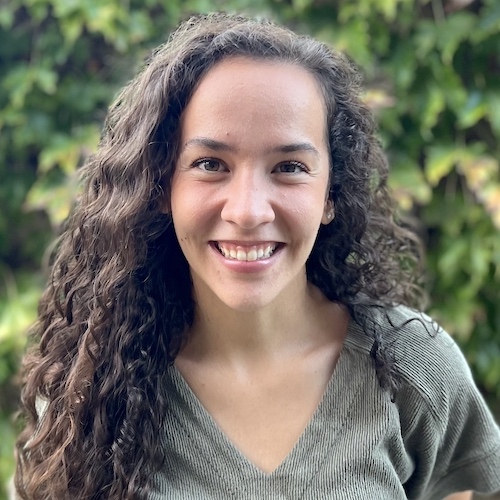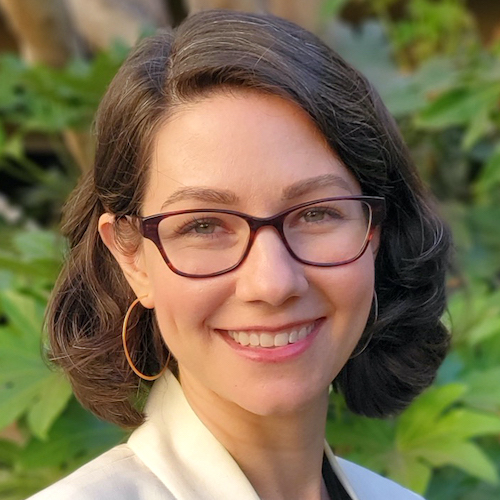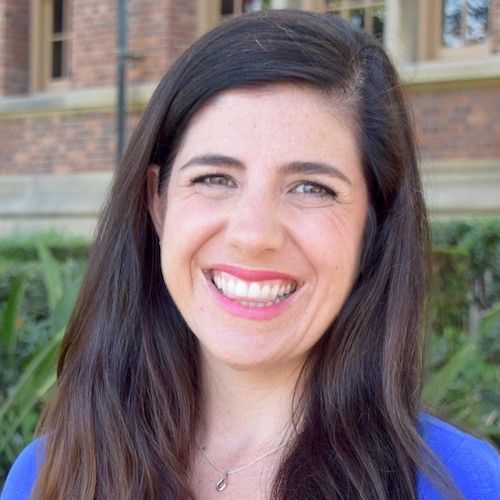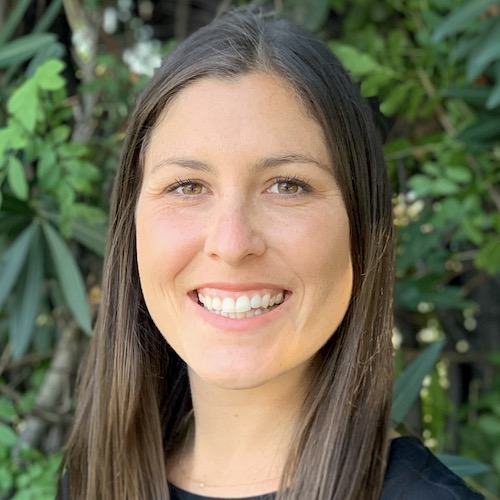Lifestyle Redesign®
Want to stay in the loop about course offerings?
Sign up to receive the bimonthly newsletter, Latest in Lifestyle Redesign to receive updates about upcoming courses!
Registration for Core Course 1 in Fall 2025 will open in May 2025; to be notified when registration opens, sign up here.
Course registration details for Spring 2025 can be found below.
Foundations of Lifestyle Redesign Course Series
The Foundations of Lifestyle Redesign Course Series is designed to fulfill several requirements for Lifestyle Redesign Certification, specifically, portions of the education and experience requirements. The Course Series is offered in a distance-learning/online format and consists of:
- THREE (3) Core Courses (total 46 hours)
- Paced asynchronous format; course assignments will have set deadlines
- 2-4 hours each week for reviewing course lectures and completing assignments
- Synchronous (“live”) participation is not required
- Eligible for continuing education (CE) credit
- FOUR (4) Special Topics courses (total 12 hours)
- Self-paced asynchronous format; course assignments are due by the end of the 6-week period in which the courses are active
- Synchronous (“live”) participation is not required
- Eligible for continuing education (CE) credit
- A Mentored Practicum in Lifestyle Redesign (OT 638)
- This is an academic, 14-week long course with weekly assignments
- 2 hours/week of synchronous (“live”) class sessions
- 2 hours/week of assignments outside of class
- Not eligible for continuing education (CE) credit
The Course Series takes a minimum of 12 months to complete, though, it is not required to complete the Course Series in this time frame. Participants are welcome to enroll in the courses at the frequency that suits them with the understanding that courses must be taken in sequential order. Visit the drop-downs below for an overview of course schedule, descriptions, and costs. Registration information for upcoming courses can be found below, under Course Registration.
The following are helpful resources that offer a range information about the Course Series:
USC is an AOTA Approved Provider of Continuing Education.
Course Schedule
Each course is offered once per calendar year, generally following the schedule outlined below. For more information about course timelines, visit the Course Schedule section in the Course Series Handbook.
2024-2025 Course Schedule:
- Core Course 1: September 9 - October 25, 2024
- Core Course 2: November 11, 2024 - March 28, 2025
- Core Course 3: April 14 - May 9, 2025
- Special Topics: May 19 - June 27,2025
- Mentored Practicum (OT 638): May 19 - August 15, 2025
Course Descriptions
Core Course 1: Foundations of Lifestyle Redesign (1.2 CEUs)
This course provides an overview of the history, core characteristics, and evidence base of Lifestyle Redesign. The course introduces evaluation, treatment planning, and goal setting within Lifestyle Redesign interventions, and provides an overview of the five core domains of Lifestyle Redesign and key terminology used in intervention delivery.
Core Course 1 is estimated at 12 hours of lecture content and assignments, to be completed across 7 weeks. This online course will be available annually, generally from September through October.
Core Course 1 is a prerequisite for all other courses in the Course Series.
More details about this course can be found on the About Core Course 1 section of the Course Series Handbook.
Core Course 2: Lifestyle Redesign Intervention Delivery (2.6 CEUs)
This course provides a deep dive into the five core domains utilized in Lifestyle Redesign interventions, as well as special considerations for intervention sequencing and discharge planning from a Lifestyle Redesign perspective.
- Domain 1, Meaningful occupations, habits, and routines, highlights the importance of performance patterns and daily occupations in shaping our health and well-being.
- Domain 2, Occupations relevant to wellness and managing chronic conditions, reviews occupations that support management of chronic conditions, such as eating routines, physical activity, medication management, and symptom tracking.
- Domain 3, Psychosocial well-being and mental health, discusses emotional regulation, coping strategies, and systemic factors that contribute to chronic stress.
- Domain 4, Environment and context, reviews how the physical and social context shape our experience of chronic conditions, discussing home safety, community mobility, social support, and life transitions.
- Domain 5, Advocacy and accessing healthcare, highlights important factors relevant to navigating the healthcare system and strategies for effectively communicating with providers.
Core Course 2 is estimated at 26 hours of lecture content and assignments, to be completed across 13 weeks. This online course will be available annually, generally from November through March. There will be a holiday break between late-December and mid-January.
Pre-requisite: Successful completion of Core Course 1.
More details about this course can be found on the About Core Course 2 section of the Course Series Handbook.
Core Course 3: Lifestyle Redesign Program Development, Implementation, and Evaluation (0.6 CEUs)
This course provides strategies for developing and implementing new Lifestyle Redesign programs in a range of settings, with relevant examples. Additionally, it reviews processes for program evaluation and monitoring, to ensure continued program success.
Core Course 3 is estimated at 6 hours of lecture content and assignments, to be completed across 4 weeks. This online course will be available annually, generally beginning in the month of April.
Pre-requisites: Successful completion of Core Courses 1 and 2.
More details about this course can be found on the About Core Course 3 section of the Course Series Handbook.
Special Topics Courses (0.3 CEUs each)
The Special Topics courses are designed for participants to obtain understanding of Lifestyle Redesign intervention for a specific patient population. Module 1 of each course will address population demographics and relevant statistics; pathophysiology, symptoms, and diagnostics for highlighted diagnoses; common comorbidities and/or precursors to diagnosis; functional and occupational impacts of diagnoses; and typical medical management of diagnoses, including multidisciplinary care. Module 2 of each course will address the application of Lifestyle Redesign core characteristics and core domains to the evaluation, assessment, and intervention care processes for the course’s specific population. Module 3 of each course will address program development and resources relevant to the course’s specific population (e.g., national organizations, patient programs, support groups, etc.).
The Special Topics courses are asynchronous with a set deadline for the final assignment. Each course is 3 hours in duration and will consist of a single assignment designed to be completed throughout the progression of the course, to be completed across 6 weeks. These online courses will be available annually, generally beginning in the month of May.
Pre-requisites: Successful completion of Core Courses 1, 2, and 3.
(4) Special Topics courses are required to meet Lifestyle Redsign Certification requirements.
Special Topics Courses currently being offered include:
Mentored Practicum in Lifestyle Redesign (OT 638, 2 semester units)
This is a 14-week semester course that requires participants attend a 2-hour online, synchronous class session each week, while practicing Lifestyle Redesign outside of class time (2 hours per week) with clients whom they access through their practice setting or other means. Participants will receive feedback about their application of the Lifestyle Redsign intervention framework, therapeutic approach, and documentation. Weekly discussion with the instructor and peers help to inform treatment planning and intervention delivery. The course requirements include two case studies with clinical observations, which serve to demonstrate competency in delivering Lifestyle Redesign interventions.
Pre-requisites:
- A minimum of 12 hours of motivational interviewing (MI) training; practitioners are encouraged to independently seek out training via the MINT training website.
- Successful completion of Core Courses 1, 2, and 3.
More details about this course can be found on the About the Mentored Practicum section of the Course Series Handbook.
Course Costs
Registration costs for the 2024-2025 Course Series courses are outlined below. For more information about AOTA member and Chan alumni discounts, and other cost-related information, visit the Course Costs section in the Course Series Handbook.
| Course |
2024-2025 Cost |
| Core Course 1 | US$400 |
| Core Course 2 | US$860 |
| Core Course 3 | US$265 |
| Special Topics (4 courses) | US$400 (US$100 each) |
| Mentored Practicum in Lifestyle Redesign (OT 638) | US$4708 (Two units of USC tuition, currently $2354 per unit) |
Approximate Total Cost: $6,633
Course Instructors
The instructors for the Foundations of Lifestyle Redesign Course Series are leaders in Lifestyle Redesign research, education and practice. Instructors are licensed occupational therapists with doctoral degrees and over 100 years of collective experience in Lifestyle Redesign. USC provides ongoing mentored training and opportunities for collaborative discourse among instructors to ensure mastery of content and consistency in content delivery across courses. Current instructors for the Foundations of Lifestyle Redesign Course Series include:

Becca Cunningham
Lead Core Course instructor

Chantelle Rice Collins
Lead Core Course instructor

Jeanine Blanchard

Camille Dieterle

Nora Dixon

Gabby Granados

Ashley Halle

Tracy Jalaba

Beth Pyatak

Lindsey Shomer

Marilyn Thompson

Ashley Uyeshiro Simon
Course Registration
Register for Upcoming Courses
The following course registration pages will be “open” until the start of the course. Note that registering less than 5 days before the course start date may result in delayed course access; extensions will not be granted due to late registration.
Course Registration Overview
All Course Series registration pages will always include “uscot.regfox.com” at the beginning of the course registration URL. Links to course registration will be made available on this page when registration for each course becomes available. Payment is due at the time of registration. Accepted payment methods include credit cards, bank checks (U.S. only), purchase orders, and wire transfers.
Once you register for a course, you are considered enrolled in that course. Beginning with Core Course 2, all prerequisites must be met in order to enroll in this course; this will be verified upon registration, prior to being granted course access. Prerequisites will always be listed on course registration pages, as well as within the Course Descriptions drop-down.
More details can be found in is course can be found on the Course Registration and Enrollment section of the Course Series Handbook.




















